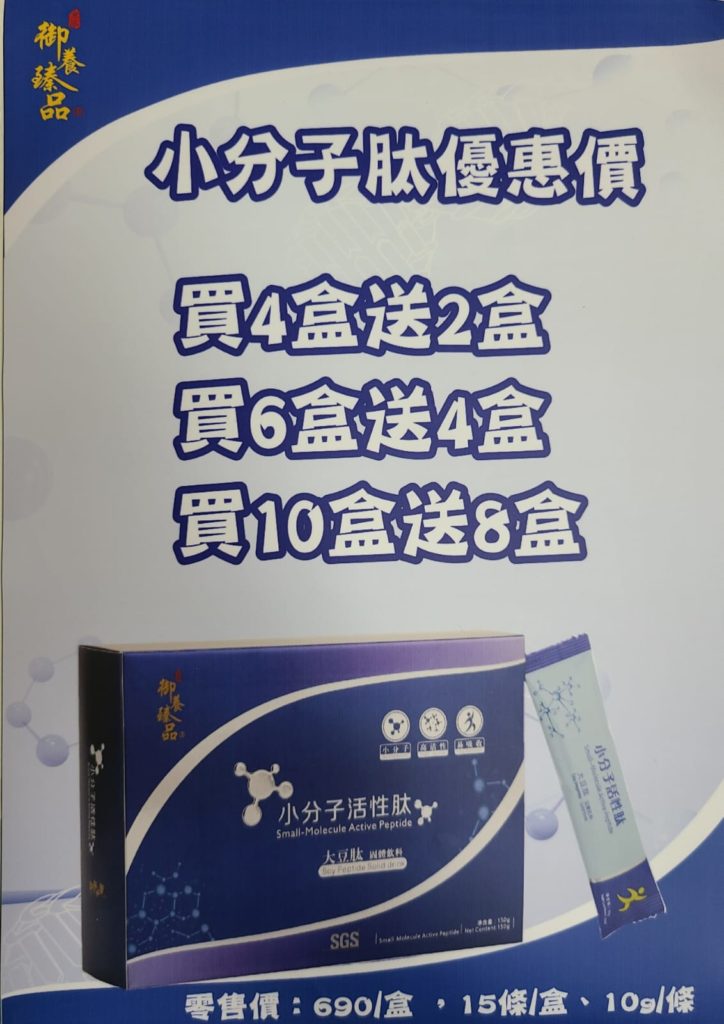Peptide (English: peptide, from the Greek word for “digest”) is a naturally occurring small biological molecule, a substance between amino acid and protein. In recent years, various peptide products have sprung up in an endless stream. Under the widespread publicity in the market, more and more consumers have learned about peptides. Some people say that it is more powerful than the elixir and can cure all diseases; others say that there is life if there is peptide, and life ends if there is no peptide.
First of all, we have to understand that peptides are neither health products nor medicines, but a kind of functional food of cells that are superior to health products and medicines. In other words, it is cellular food, as safe as eating, without any side effect. Therefore, there is no problem of overdose of peptide supplementation, unlike the problem of taking too much medicine.
Secondly, peptides are very important to the human body and control the physiological functions of the human body. Peptides are an endogenous substance in the human body. Every activity of our body, including every breath and every heartbeat, is determined by peptides. If our body leaves the peptide, these activities will be gone. In addition, all our physiological functions are low, disorder, all disease states and sub-health states are caused by peptide deficiency.
Furthermore, the functions of all nutritional products, health foods and medicines are incomplete, and only peptides have the most comprehensive functions. As the famous American scientist Dr. Yu Klin pointed out: “Peptides are used to treat almost any disease. There is no medicine to compare with them.” Peptides also have carrier functions, which can promote the absorption of health care products and medicines and deliver them to urgent needs. Where to go, this is the advantage of peptides.

Since amino acids have the smallest molecules and proteins the largest, short chains of amino acid monomers connected by peptide bonds. When the carboxyl group of one amino acid reacts with the amino group of another amino acid, the covalent chemical bond is formed. Dipeptides (referred to as dipeptides) are protein fragments composed of two amino acids. Two or more amino acids are dehydrated and condensed to form several peptide bonds to form a peptide. Multiple peptides are formed by multi-fold folding. A protein molecule.
Amino acids make up proteins through peptide bonds. The hydrolysis of proteins into single molecules of amino acids is not high-tech. Decomposition into small peptides is not high-tech. Peptides can be hydrolyzed from dietary protein (dietary protein) through chemical methods or can be obtained artificially. . It is composed of the polymerization of two or more amino acids, which is very important in the regulation of cell physiology and metabolic functions. Most of the peptides are unstable, so they should be kept away from moisture for long-term storage and kept below 4°C.

Active peptides are closely related to nutrition, hormones, enzyme inhibition, immunity regulation, antibacterial, antiviral [2], and antioxidant. Peptides are small molecules, scavengers, repairers, and porters. Peptides can provide nutrients and energy to cells, inhibit, repair, activate, and promote normal cell work and metabolism. Peptides are not medicines, nor can they replace medicines, but sometimes they can solve problems that medicines can’t solve. They can enhance one’s own immunity and change the sub-health state of the human body. The scope of application of peptides:
1. Peptide products cover comprehensive nutrition and health care — Nutritional health products contain a certain amount of functional ingredients and have specific effects for a certain aspect. Peptides are sourced in the human body, which can regulate various parts of the human body, so as to achieve the balance of the human body.
2. Peptide products are suitable for all people — Nutritional health products have specific effects, so there are generally specific people who take them. Peptides are medical-grade foods that can synthesize various proteins in the human body and are substances that everyone needs to supplement.
3. There is no excessive restriction on peptide products — Excessive consumption of nutrient health products can lead to too much of a certain nutrient in the body, resulting in an imbalance in the total proportion of the human body, which is not conducive to health. Peptides are substances that exist in the human body. Even if they are taken too much, the body will accelerate the elimination of them, but it will only cause the waste of small molecule peptides, and there is no other harm.
The health effects of peptides on the human body:
- Inhibition-inhibit cell degeneration and enhance human immunity.
- Activation-activate cell activity, effectively remove free radicals harmful to the human body.
- Repair-repair human degenerated cells and improve cell metabolism.
- Promote-promote and maintain normal cell metabolism.


